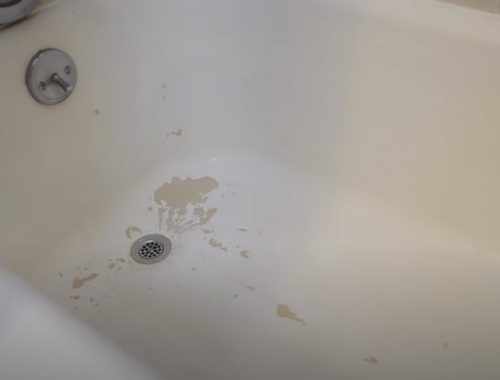Should You Choose CPVC or PEX Pipes for Your Home?
Even the most wonderful experiences come to an end eventually. That also applies to your home’s plumbing system! Over the course of their lifetimes, metal pipes will eventually rust, corrode, and degrade. Knowing when your home’s pipes will need to be replaced is crucial because repairing water pipes is a challenging procedure.
Older homes have a higher risk of having damaged pipes, but all household plumbing systems need regular maintenance and inspections. You should periodically do the task of checking your pipes for signs of deterioration, like discoloration or flaking, once a year. Watch for leaks and pay attention to the color of your water. It should go without saying that all residences should have their pipes inspected for deterioration, but older homes are the most dangerous.
Do you need help fixing pipes that are broken or leaking? Contact https://plumbernorthbergen.com/ at (201) 389-9959 for prompt assistance. Water pipe replacement can be a difficult and involved process. Learn the costs associated with replacing your home’s pipes as well as whether PEX or CPVC pipes should be considered for installation.
Why Does PEX Pipe Have That Name?
The acronym PEX is extremely unique because none of the letters in it stand for specific nouns. While “P” and “E” both stand for polyethylene, the letter “X” in PEX stands for cross-linked. Cross-linked polyethylene’s molecular structure produces a strong, flexible material that can withstand high temperatures and pressures. PEX is a fantastic material for the building of supply lines for both hot and cold water because of its great durability. PEX pipe is available in a wide variety of diameters, ranging from 1/4 inch to 4 inches.
Benefits of PEX Pipe Use
Due to its greater flexibility compared to pipes composed of other materials, including copper or CPVC, PEX pipe is often easier to install. Sometimes it is possible to install PEX pipes inside of constructions without first drilling holes to make place for them due to their flexibility. The option for the water supply line that makes the least noise and never causes water hammer sounds inside the residence is PEX pipes. Unlike metal pipes, PEX does not rust and has excellent heat resistance in addition to being long-lasting.
Drawbacks of PEX Pipe
PEX pipes can only be installed in places where there is zero chance that they will come into contact with dangerous chemicals, extreme heat, or ultraviolet light. These circumstances may cause PEX material to deteriorate more quickly than usual.
How Does CPVC Pipe Work?
CPVC (chlorinated polyvinyl chloride) pipes are durable and long-lasting. Many people are more familiar with PVC, which was introduced before it. Because CPVC pipe contains more chlorine than standard pipes, it is less likely to liquefy when exposed to hot water. CPVC pipe is available in a wide range of sizes, starting at 1/2 inch and going up to 2 inches.
Benefits of CPVC Pipe
CPVC pipes are better equipped to withstand high temperatures than PVC or PEX pipes (up to 200 degrees Fahrenheit vs. 140 degrees Fahrenheit). It is perfect for use in the distribution of domestic water since it has greater joint strength compared to PVC and copper pipes as well as superior corrosion resistance compared to metal pipes. Additionally, CPVC nearly completely eliminates noise from water hammers.
Drawbacks of CPVC Pipes
The use of CPVC pipe has some disadvantages. Installing CPVC pipe has a number of disadvantages, including the following:
- Many water-insoluble hydrocarbon-based chemicals, including those found in cosmetics and household cleaning supplies, are not resistant to CPVC. Both of these groups contain these compounds.
- Compared to CPVC, copper pipes can withstand temperatures as high as several thousand degrees Fahrenheit.
- CPVC shouldn’t be used in settings with large temperature changes because of its high thermal expansion coefficient.
- When it comes to plumbing, CPVC is one of the most expensive options.
Why Can’t We Depend on Copper Pipes?
Over the past century, copper pipes have been used in homebuilding. Comparatively speaking, PEX and CPVC pipes have a variety of advantages over copper pipes. Corrosion and pinhole leaks are only two problems that copper pipes are prone to. Their soldered seams are prone to developing leaks when subjected to high temperatures. Copper pipes will lose heat energy if no insulating coverings are provided for them.
Things may experience condensation if the proper insulation is not present around them and in certain circumstances. Additionally, copper prices are unpredictable, which means that a homeowner who installs copper pipes throughout their entire house may incur extraordinarily high costs.
What Is the Average Cost to Replace All the Pipes in a House?
The following are some of the variables that affect how much it costs to repipe a home:
- the house’s measurements.
- how many water-intensive appliances and plumbing fixtures (including sinks, toilets, and showers/tubs) do you have in your house
- the condition of the pipes that are in use right now?
- the simplicity of access as well as the complexity of the current pipe network.
- The pipe types that were selected (copper is the most expensive option).
Call BJC Plumbers North Bergen immediately to schedule an appointment for water pipe replacement. Your nearby BJC Plumbers North Bergen are capable of replacing a single pipe as well as repiping a full property. We also have the equipment needed to fix frozen pipes and plumbing problems. Contact us at (201) 389-9959 right away for help with all of your water pipe needs. A job estimate is also available online.
You May Also Like

How to Install PVC Tile Board: A Step-by-Step Guide
May 17, 2021
The 5 Biggest Technology Trends In 2021
January 4, 2021